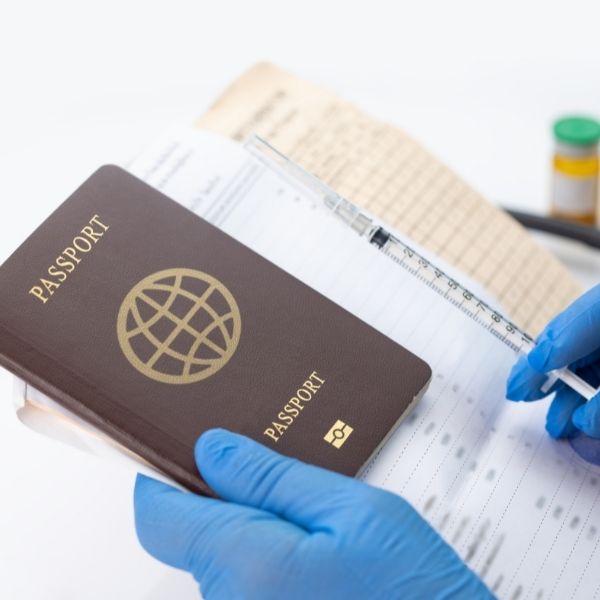
General Travel Vaccination Advice for Australia
The decision to travel to Australia is your choice and you are in charge of getting all the vaccination you are needed to have ahead of your trip to Australia.
The content on this page is provided for information only and gathered from travel advice and warnings for Australia by governments around the world to their citizens.
While we make every effort to give you latest travel advice information, it is provided on an “as is” basis without warranty of any kind, expressed or implied.
This owners of this website does not assume responsibility and will not be liable for any damages in connection to the information provided.
General Vaccination Needed for Australia
Do I require to inoculation when taking a trip to Australia? Any person choosing to embark on vacation or business trip to Australia need to seek advice from a health care expert or visit a travel health clinic ideally six weeks before you travel regarding the folloing:
Regular Vaccines – Be sure that your routine vaccines such as vaccination for measles-mumps-rubella (MMR), diphtheria, tetanus, pertussis, polio, varicella (chickenpox), flu and others are up-to-date regardless of your travel to Australia.
Additionally, you may be at risk for these vaccine-preventable diseases when taking a trip in Australia. Speak to your travel health specialist regarding which of these vaccines are right for you:
- Covid 19 is a transmittable viral disease. It can spread from one person to another by direct contact and through droplets airborne.
- Hepatitis B A disease of the liver spread through blood or various other bodily fluids. Tourists who may be exposed (e.g., through sexual contact, clinical treatment, sharing needles, tattooing, acupuncture or work exposure) must obtain vaccinated.
- Influenza (Flu) Seasonal flu occurs worldwide is triggered by an infection spread from person to person when they cough or sneeze or by touching objects and surface areas that have been contaminated with the virus.
- Measles is a highly infectious viral disease. It can spread out promptly from person to person by direct contact and also through droplets in the air.
- Tick-borne encephalitis exists in some areas of Australia and it is a viral disease that impacts the central nervous system (brain and spinal cord). It is spread to humans by the bite of infected ticks or when you take in unpasteurized milk products.
Is it safe to travel to an area with animals in Australia?
Travellers to Australia are normally warned to steer clear of contact with animals, including canines, monkeys, snakes, rodents, birds, as well as bats. Some infections found in some locations of Australia, like bird influenza as well as rabies, can be shared among human beings and animals.
Whilst taking a trip Australia, is it safe to drink water in Australia?
Travellers to any destination in the world including Australia can develop travellers’ diarrhea from consuming contaminated water or food.
As food and water can become carries of diseases like cholera, hepatitis A, schistosomiasis and also typhoid, constantly practice safe food and water precautions while travelling in any part of the world. Bear in mind: Boil it, cook it, peel it, or leave it!
Travel insurance coverage for Australia
Health cover is just one of the primary reasons travellers get travel insurance. It will not stop you getting sick or injured, though it can prevent you suffering financially. Medical help overseas can be very expensive.
You have to pay for all treatment you receive overseas. You can not expect to get free or subsidised care through your Australia’s public health system, like you would in your home country.
If you can’t pay, local authorities can apprehend you. The government from your home country can’t pay you medical costs for you, loan you cash or get you out of jail.
You require travel insurance policy for travelling to Australia. You also need to make certain you select a policy that is right for you.
Check out the fine print of your travel insurance policy.
Declare all pre-existing conditions to your travel insurance provider upfront. If you do not, you may invalidate your travel insurance policy.
Inform your travel insurer the activities you plan to do, prior to you go. Many popular activities like winter sports are omitted in basic plans. You may require to pay extra.
Check if you have complimentary credit card travel insurance coverage. Some cards include travel insurance cover. Nevertheless, they often have different conditions than paid policies. Be aware of the differences.
If you’re travelling to Australia from a country that has a reciprocatory health care agreement, you still need travel health insurance. Agreements are restricted in what they’ll will cover.
If you have an incurable ailment, you may not have the ability to obtain basic travel insurance policy. However you might be able to get a specialised insurance provider that covers you for health, accidents or property issues unrelated to your ailment. Speak with your insurance company to find out.
Discover more about getting international travel insurance policy for Australia prior to you go.
